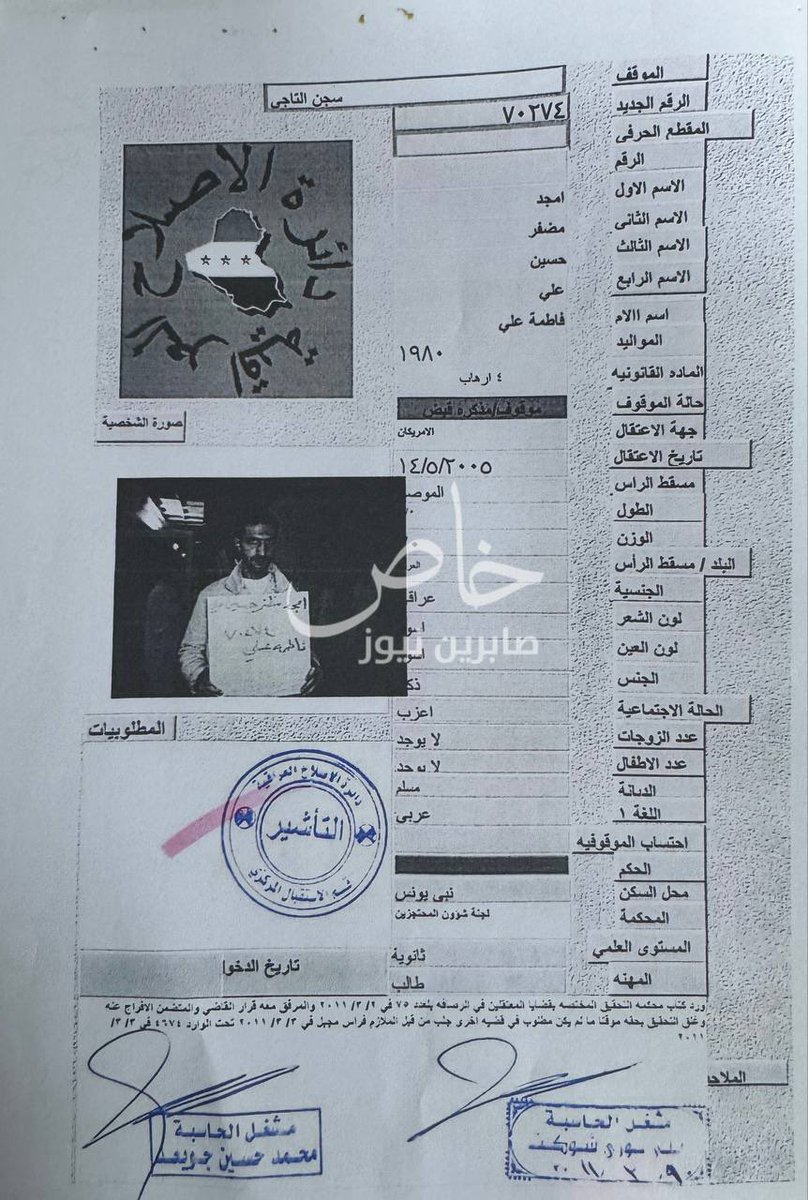Contrary to what we know, the current leader of the Islamic State (ISIS) was born NOT in Tal Afar, but in a village near Mosul.
An Arab, not a Turkoman.
You heard it here first. - Iraq sources.
An Arab, not a Turkoman.
You heard it here first. - Iraq sources.
Also the detail in my tweet below was going against the conventional wisdom of the Iraqi and the US intel about his ethnicity.
I based my conclusion on internal discussions within ISIS & my understanding of the tribal origins of this "Turkoman" tribe.
I based my conclusion on internal discussions within ISIS & my understanding of the tribal origins of this "Turkoman" tribe.
https://twitter.com/hxhassan/status/1190077003099234304
Until recently, the US, Iraq & the UN all thought the current leader (Hajji Abdullah or Abdullah Qardash) wasn't really a Quarashi, that he was a Turkoman, and that he was a 'placeholder' until ISIS would appoint an Arab of Qurashi origins per its ideology
https://twitter.com/hxhassan/status/1223293097129447425
Triangulation of sources also helped me guess where the next leader of ISIS would be from, about a year before Abu Bakr al-Baghdadi was killed. The Iraqis leaked it in a fake document falsely attributed to ISIS, but the document was based on real intel:
https://twitter.com/hxhassan/status/1159817305502601216
Much of what we've heard about the person, though, is propaganda. So take anything you will hear with a pinch of salt...
More on this later.
This was an extensive interview that Husham al-Hashimi conducted with a top ISIS leader (now in Iraqi custody) and a relative of the current leader.
cgpolicy.org/articles/inter…
There is an important detail not mentioned in the interview, but sources corroborated it at the time 1/2
cgpolicy.org/articles/inter…
There is an important detail not mentioned in the interview, but sources corroborated it at the time 1/2
The part not mentioned in the interview, but corroborated by sources, is that Abu Musab al-Zarqawi made instructions that this person (NOT the current leader) shouldn't be given a leadership position after he leaves prison because he gave up all details he knew about al-Qaeda 2/2
Remember this accusation about the currently jailed ISIS leader, that he was a snitch. Zarqawi issued an instruction to not give him a leadership position if he left prison. At the time he was working with AQI in Mosul, before he was captured by the US.
https://twitter.com/hxhassan/status/1306418943159083008
I corroborated that detail with one of the founders of Jabhat al-Nusra in Syria, who had supervised Qardash when both operated in that area circa 2005.
Thus far, media coverage of this profile and the circumstances around him has been poor, buying into misleading info/leaks.
Thus far, media coverage of this profile and the circumstances around him has been poor, buying into misleading info/leaks.
That the new ISIS leader comes from those circles is quite significant, part of a movement that had existed in Iraq throughout the 1990s, BEFORE Zarqawi set foot in Iraq. By the likes of Abu Ali al-Anbari (also falsely identified as Turkoman), not Zarqawi theatlantic.com/ideas/archive/…
The real name of the current ISIS leader, now finally confirmed, is Amir Muhammad Sa’id Abd-al-Rahman al-Mawla.
Born in Mahalabiyah, between Mosul and Tal Afar.
Not far from his village of birth is another one named after his Arab tribe, al-Mawali.
Born in Mahalabiyah, between Mosul and Tal Afar.
Not far from his village of birth is another one named after his Arab tribe, al-Mawali.
Iraqi sources say his birthplace is known to be dominated by "Turkoman", who speak the Turkish language etc. Many of these families, however, are Turkofied.
In those parts of Iraq & Syria, even some tribes melt into others & identify as part of them even if they're not really.
In those parts of Iraq & Syria, even some tribes melt into others & identify as part of them even if they're not really.
For some background on al-Mawali, here is some of my research on it. [Please note that this was part of original research that has gone against the conventional wisdom so far, so cite accordingly. It will become important]
https://twitter.com/hxhassan/status/1190078668049207297
The first lead to "guessing" who could be the next leader of ISIS after Baghdadi & why the core of ISIS & its ideology originated in Iraq, organically, before Zarqawi came to Iraq. Summarized, although not sufficiently, in this essay of mine:
theatlantic.com/ideas/archive/…
theatlantic.com/ideas/archive/…
OK, and I'm sorry but this is about fact & fiction:
This claim is absolutely rubbish
This claim is absolutely rubbish
https://twitter.com/Charles_Lister/status/1306575860330385410, for reasons I explained in the piece I wrote last night. An example of the kind of things that should be seen through by any serious experts on ISIS & CT.
In this piece, I explain why that claim is untrue cgpolicy.org/articles/exclu…
-It's the same claim made about another top ISIS leader
-carbon-copy of others about other anti-US operatives in Iraq (snitches)
-Al-Mawla was a close aide of Baghdadi who only had trusted & reliable ones
-It's the same claim made about another top ISIS leader
-carbon-copy of others about other anti-US operatives in Iraq (snitches)
-Al-Mawla was a close aide of Baghdadi who only had trusted & reliable ones
Here is another example, the same talking points used when the interrogations' papers were declassified. Ponder that: wsj.com/articles/decla…
• • •
Missing some Tweet in this thread? You can try to
force a refresh





















